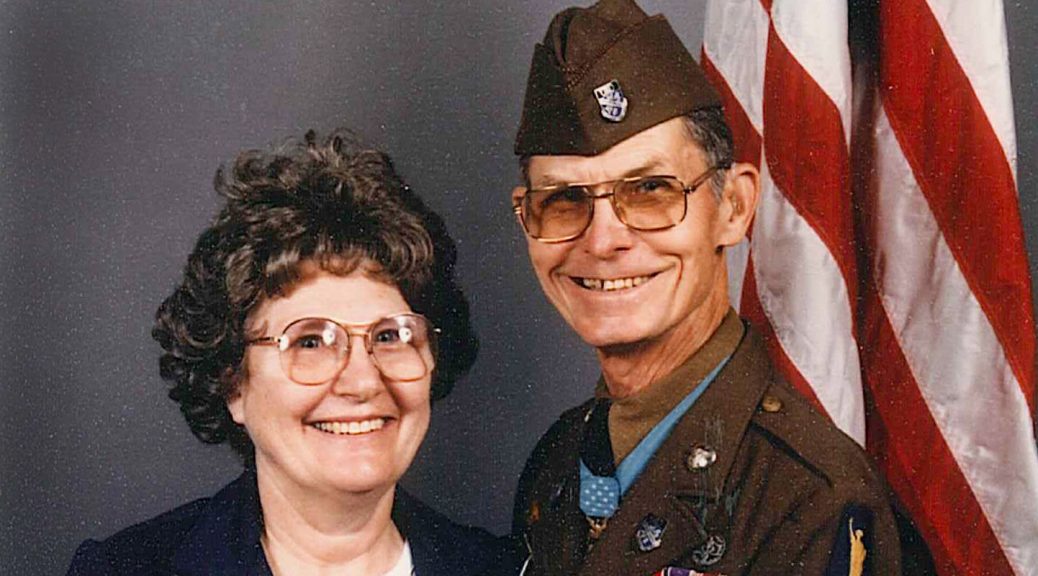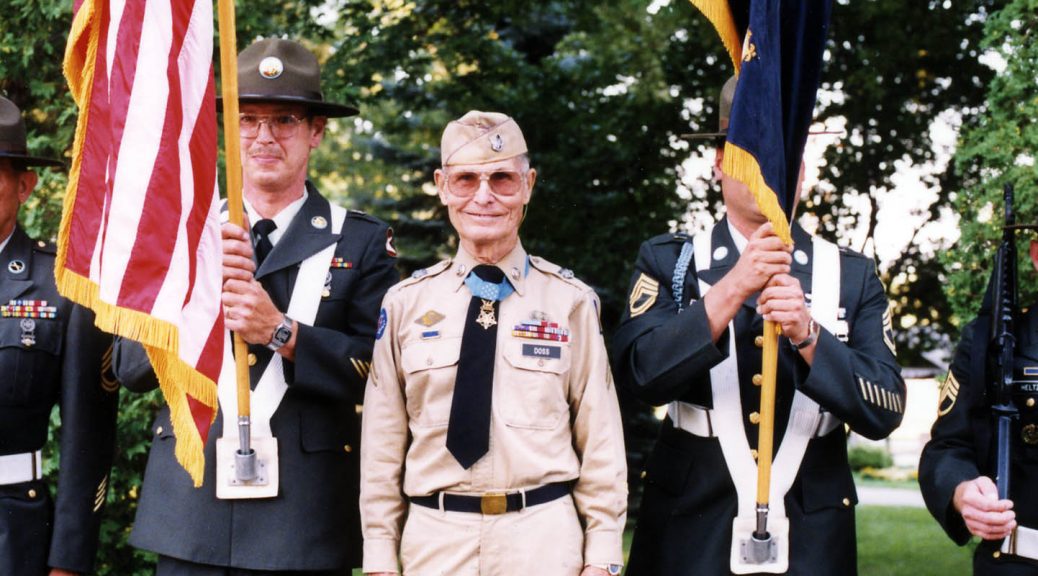
Mel Gibson’s epic Hacksaw Ridge is not a work of fiction – it’s inspired by the incredible life and achievements of Desmond Doss.
On April 1, 1942, Desmond Doss joined the United States Army. Three and a half years later, he stood on the White House lawn, receiving the nation’s highest award for his bravery and courage under fire. Of the 16 million men in uniform during World War II, only 431 received the Congressional Medal of Honor. Among these was a young Seventh-day Adventist Christian who refused to carry a gun and had not killed a single enemy soldier. His only weapons were his Bible and his faith in God. President Harry S. Truman warmly held the hand of Corporal Desmond Thomas Doss, as his citation was read to those gathered at the White House on October 12, 1945. “I’m proud of you,” Truman said. “You really deserve this. I consider this a greater honor than being president.”
When Pearl Harbor was attacked, Desmond was working at the Newport News Naval shipyard and could have requested a deferment. But he was willing to risk his life on the front lines in order to preserve freedom. He wanted to be an Army combat medic and assumed his classification as a conscientious objector would not require him to carry a weapon. When he was assigned to an infantry rifle company, his refusal to carry a gun caused his fellow soldiers to view him with disdain. They ostracized and bullied him. One man warned, “Doss, when we get into combat, I’ll make sure you don’t come back alive.”
Desmond was raised with a fervent belief in the Bible. He took the Ten Commandments, personally—especially the words, “Thou shalt not kill.” He also took the fourth commandment seriously. His religious upbringing included weekly church attendance, on the seventh day. The Army was exasperated when he asked for a pass to attend church every Saturday. His officers saw him a liability, a soft spoken skinny kid from the south and a Bible reading misfit. They tried to intimidate him, gave him extra duties, falsely declared him mentally unfit and attempted to court martial him. He believed his duty was to obey God and serve his country—in that order, and he refused to leave.
Desmond served in combat on the islands of Guam and Leyte. In each military operation he exhibited extraordinary dedication to his men. While others were taking life, he was busy saving life. As enemy bullets whizzed past and mortar shells exploded around him, he repeatedly ran to treat a fallen comrade and carry him back to safety. By the time they reached Okinawa, he had been awarded two Bronze Stars for valor.
In May, 1945, Japanese troops were fiercely defending Okinawa, the only remaining barrier to an allied invasion of their homeland. The American target was capturing the Maeda Escarpment, an imposing rock face the soldiers called, Hacksaw Ridge. After they secured the top of the cliff, Japanese forces suddenly attacked. Officers ordered an immediate retreat. As a hundred or more lay wounded and dying on enemy soil, one lone soldier disobeyed those orders and charged back into the firefight. With a constant prayer on his lips, he vowed to rescue as many as he could, before he either collapsed or died trying. His iron determination and unflagging courage resulted in at least 75 lives saved that day, May 5, 1945, his Sabbath.
Several days later, during an unsuccessful night raid, Desmond was severely wounded. Hiding in a shell hole with two riflemen, a Japanese grenade landed at his feet. The explosion sent him flying. The shrapnel tore into his leg and hip. While attempting to reach safety, he was hit by a sniper’s bullet that shattered his arm. His brave actions as a combat medic were over. But not before insisting that his litter-bearers take another man first before rescuing him. Wounded, in pain, and losing blood, he still put the safety of others ahead of his own.
Before being honorably discharged from the Army in 1946, Desmond developed tuberculosis. His illness progressed and at the age of 87, Corporal Desmond Thomas Doss died on March 23, 2006. He is buried in the National Cemetery, Chattanooga, Tennessee.
For more information, please visit: www.desmonddoss.org.
Image courtesy of Desmond Doss Council.
